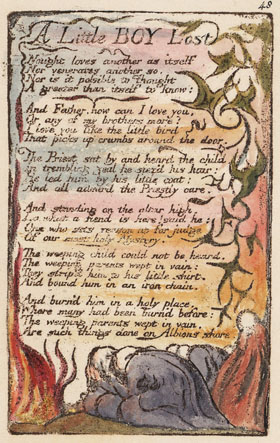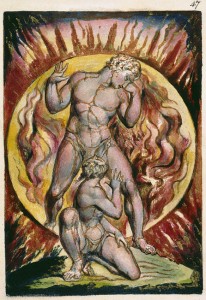Often times there is a debate between discourses and whether or not they are valuable. Despite what the popular socially constructed beliefs are, I firmly believe that every discourse serves a purpose. Specifically, one discourse that has changed my perception of various aspects of education, social spheres, and cultures in English. Thus, has taught me more than I had previously known. I have learned that this discourse is diverse, critical, and often serves as a reflective mirror.
Furthermore, English branches out and it is not just discoursed specific, into other discourses like the sciences, art, writing, and so much more. For example, William Blake who has added to the varying perceptions varying within social, political, humanistic, and feministic ideologies. One of the most interesting aspects of English 190: William Blake is how diverse and multi-dimensional the subject is. Essentially what this course has demonstrated is how important it is to be critical of oneself is and what values can be found within our societies.
Therefore, all things must exist in order to obtain knowledge and empathy. Including, no one state can exist without one another. For instance, what Blake calls contrary states which can be applied in our own lives ranging from morality to culturally. In essence, there must be good and bad, as well as grey areas. Adhering to an institution hinders one’s ability to fully grasp the complexities within other forms of ideologies, since certain types are only taught. Blake asks us to be the Poetic Genius, to be a critical thinker and question and not just uphold what is taught. By thus, allowing ourselves to displace social constructs and institutions helps and directs the reader to see beyond their own realities and place themselves within other realities which allow for the growth of emotional intelligence and awareness. Therefore, the listeners, readers, the judicious spectators could acquire a knowledge which removes the from the stereotypical bubbles that often times encumber our societies. Humanity in its essence is not universal beings but varied in cultures, races, beliefs, and complexities. None of these realities can be effectively fair or questioned if they are not taken into account.
Therefore, literature does prove to be truthful and a discourse that provides knowledge that enforces ethical and moral concerns. That is not to say that literature is always truthful, the imaginative is after all unreal. All forms of literature in its vast in its varied mediums and therefore is our job to seek out realities into imaginative or realistic states. Thus, exposure leads to a better understanding of ourselves and multiple people. With all of this discussion in mind, humanities serve to question and make a change to our laws social, political, educational, or religious, that may misserve those who are not included.
Yet, Blake also infers us to question himself and his own ideas. Deconstructing the constructed by reconstructing what has been previously taught from varying forms. By applying this multi-dimensionally in English courses it also transcends into writing, social relations, etc. In addition, he calls forth to appreciate the aspect of life that allows for inclusivity. More or less, it asks us to question prison systems, socio-political ideologies, laws, marriage, ethicality, and our own perceptions.
Thus, being a poetic genius allows our voices to be not only in written forms but also surpass our technological era and reaching a multitude of platforms. In continuation, allow us to keep forth questioning our policies and society to those that continue to be disenfranchised, marginalized, to the Others.






